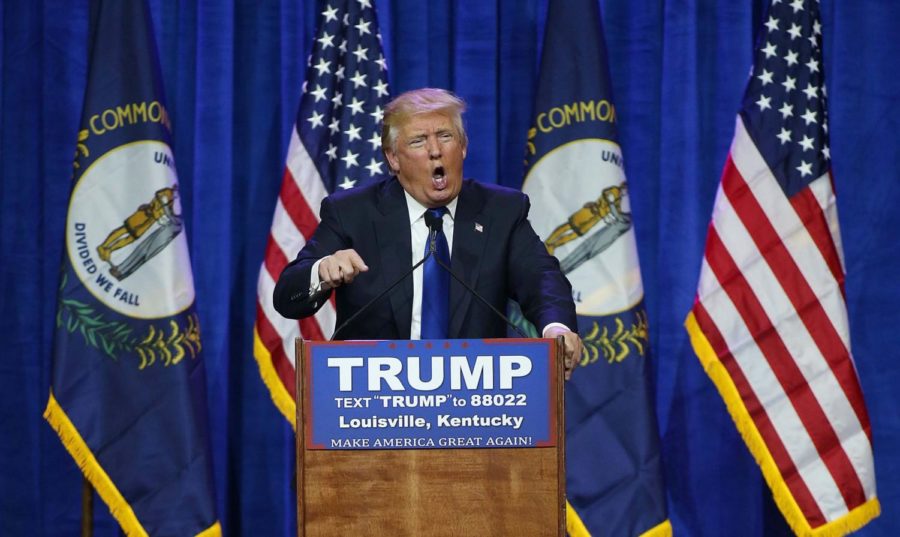Contentious DeVos hearing reflects lack of experience
Republican presidential candidate Donald Trump speaks during a rally at the Kentucky International Convention Center in Louisville, Ky. on Tuesday, March 1, 2016. Photo by Michael Reaves | Staff.
January 20, 2017
Following the new trend in Washington, which seems to be placing people in specialized positions of power that deal with areas they have no experience in, Betsy DeVos came before the Senate Committee on Health, Education, Labor and Pensions for her confirmation hearing on Tuesday, Jan. 18. For those unaware, she is President Trump’s pick for Secretary of Education.
This seems to be a break from Trump’s previous logic—Ben Carson was picked to head Housing and Urban Development presumably because he has lived in a house. One would assume Elaine Chao (the wife of House Majority Leader Mitch McConnell), whom Trump has chosen to be Transportation Secretary, probably has a driver’s license. However, during her confirmation hearing, DeVos admitted to having never attended public school, taken out a student loan or received a Pell Grant.
DeVos has been a longtime critic of the public school system, despite not attending herself, nor enrolling her children in the system. Her alternative solution lies in charter schools, a hot term that is generating a lot of buzz from both sides of the political party line.
Charter schools receive taxpayer dollars like public schools, but are not held to the same standard of transparency—this refers to information like salary figures and daily operations. Furthermore, charter schools have been criticized for selective attendance through indirect means. For example, charter schools often serve less special-needs, English-learner, minority and impoverished students. The cause of this may be lack of programs for students of these demographics or admission, marketing and operating strategies.
Potential defunding of public schools aside, when pressed to state guns had no place in schools, DeVos referred to a school where a fence had been erected to keep out wildlife, stating, “I would imagine that there’s probably a gun in the school to protect from potential grizzlies.”
When asked by Senator Tim Kaine whether or not she believed all schools receiving federal funding should have to follow the Individuals With Disabilities Education Act (a federal law that protects the educational rights of disabled students) guidelines, Devos responded, ““I think that is a matter that is best left to the states.”
The only potential comfort to be found in this disastrous situation is the chance DeVos is not confirmed. Until confirmation happens, those who question Trump’s pick not just for Secretary of Education, but also other positions requiring confirmation are urged to contact their state’s senators and relay any concerns.
































































































































































